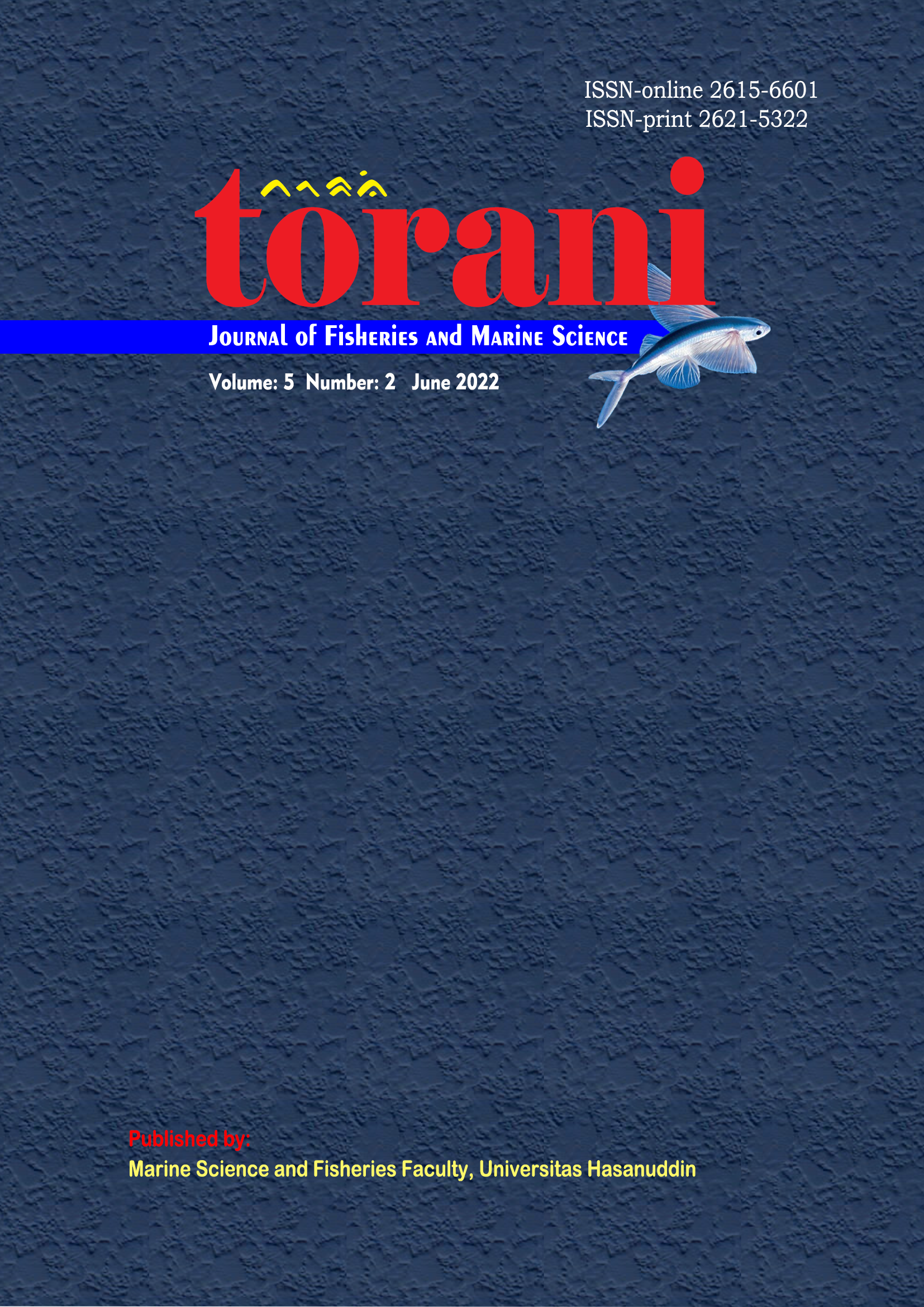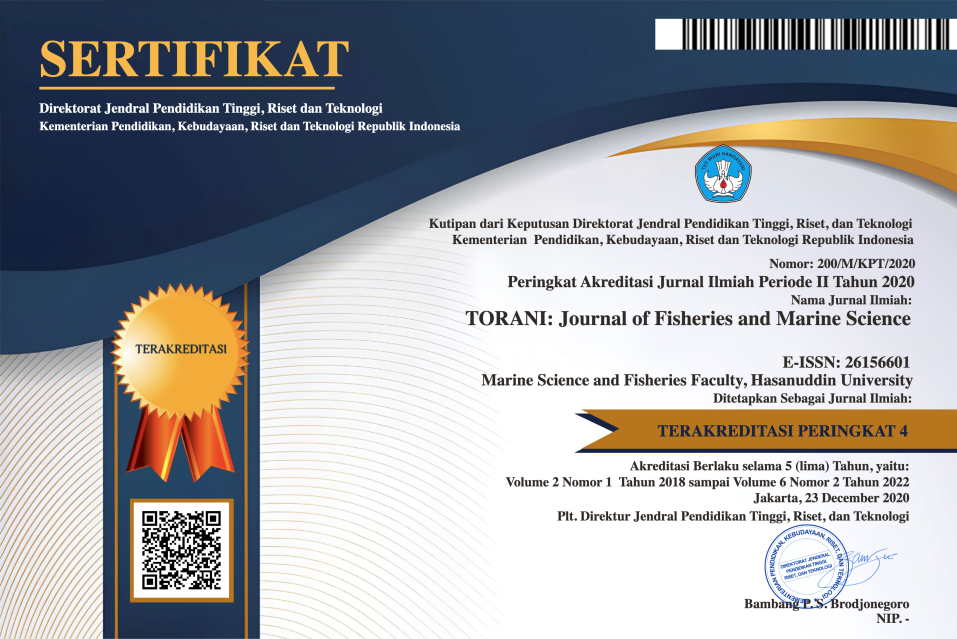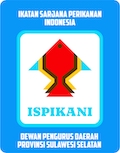The Characteristics of Fishing Ground Using Purse Seine in Makassar Strait and Flores Sea
DOI:
https://doi.org/10.35911/torani.v5i2.22412Keywords:
fishing ground, purse seine, makassar strait, flores seaAbstract
In order to optimally utilize marine fishery resources, the Government of the Republic of Indonesia divides Indonesian waters into 11 Fisheries Management Areas (IFMA), one of which is IFMA 713 which includes the waters of Bone Gulf, Bali Sea, Flores Sea and Makassar Strait. This study aims to provide information on the utilization of pelagic fish resources with a focus on the characteristics of fishing areas using purse seine fishing gear in the Makassar Strait and Flores Sea. In this study, 62 fishing trips using purse seines were carried out, each has 31 trips fishing operation in the Makassar Strait and in the waters of Flores Sea, respectively. The main catch and number for each water area was skipjack tuna (Katsuwonus pelamis) as many as 2,367 fish (Makassar Strait). While in the Flores Sea area, it is dominated by little tuna (Euthynnus sp) with a total of 11,039 fish. The results of this study indicate that the correlation of sea surface temperature with chlorophyll-a in the waters of the Makassar Strait and Flores Sea has a negative relationship with an optimum sea surface temperature of 30.5 °C for skipjack tuna and 28.0 °C for little tuna which corresponds to the chlorophyll-a concentration of 0.3 mg m-3 (skipjack tuna) and 0.2 mg m-3 for little tuna. The vertical distribution of skipjack tuna was found at the optimum depth of around 50 m, while most little tuna was caught in deeper waters around 250 m.
References
Goujon M, Majkowski C. 2010. Biological characteristics of tuna. FAO Fish Aquac Dep. http://www.fao.org/fishery/topic/16082/en
FAO. 1995. Code and conduct for responsible fisheries. Rome. 48 pp.
KKP. 2017. Laporan Tahunan. Kementerian Kelautan dan Perikanan. 35 hal.
Pecoraro C., Zudaire I., Bodin N., Murua H., Taconet P., Díaz-Jaimes P., Cariani A., Tinti F., Chassot E. 2017. Putting all the pieces together: integrating current knowledge of the biology, ecology, fisheries status, stock structure and management of yellowfin tuna (Thunnus albacares). Rev. Fish Biol. Fish. 27, 811–841. https://doi.org/10.1007/s11160-016-9460-z
Safruddin, R. Hidayat, M. Zainuddin. 2018. Effects of environmental factors on anchovies Stolephorus sp distribution in Bone Gulf, Indonesia AACL Bioflux 11(2):387-393.
Safruddin, B. Aswar, M. Rijal Ashar, R Hidayat, Y K Dewi, M. T Omar, S. A Mallawa and M Zainuddin. 2019. The Fishing Ground of Large Pelagic Fish During the Southeast Monsoon in Indonesian Fisheries Management Area-713. IOP Conference Series: earth and environmental science. Volume 370.
Safruddin, R. Hidayat, dan M. Zainuddin. 2020. Daerah Penangkapan Ikan Cakalang berbasis data citra Oseanografi di Wilayah Pengelolaan Perikanan (WPP) 713. TORANI: Journal Fisheries and Marine Science. Volume 3 nomor 2. Hal 51 – 60.
Safruddin, R. Hidayat, S. A. Farhum, dan M. Zainuddin. 2021. The use of statistical models in identifying skipjack tuna habitat characteristics during the Southeast Monsoon in the Bone Gulf, Indonesia. Biodiversity Journal of biological Diversity, Volume 23, Issue 4, April 2022 ISSN 208-4722.
Sprintall, J and W.T Liu. 2005. Ekman mass dan Heat Transport In The Indonesian Seas Oceanography of Indonesian Seas and Their Through flow. Oceanography 18 (4): 89–97.
Wijaya, A., U. Zakiyah, A.B. Sambah, and D. Setyohadi 2020. Spatio-temporal variability of temperature and chlorophyll-a concentration of sea surface in Bali Strait, Indonesia. Biodiversitas J. Biol. Divers. 21, 5283–5290. https://doi.org/10.13057/biodiv/d211132.




















